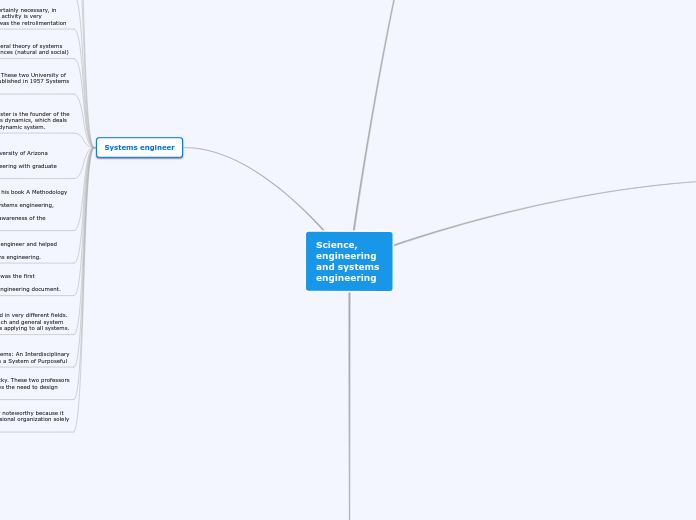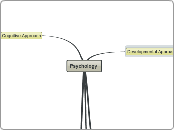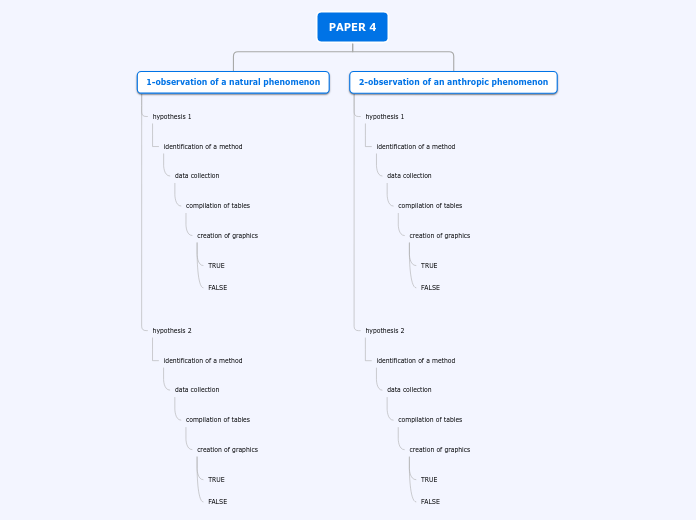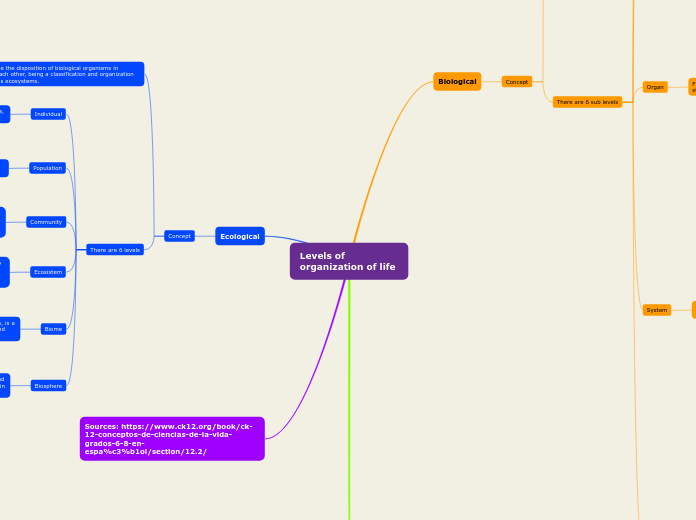Science, engineering and systems engineering
Systems engineer
INCOSE. The year 1990 was particularly noteworthy because it
marked the formation of the first professional organization solely
dedicated to systems engineering.
Benjamin S. Blanchard and Wolter J. Fabrycky. These two professors
at Virginia Tech stressed in the early eighties the need to design
systems with a true life-cycle perspective
He has authored
over 30 books, including On Purposeful Systems: An Interdisciplinary
Analysis of Individual and Social Behavior as a System of Purposeful
Events (together with Frederick E. Emery) in 1972 and Redesigning
the Future: Systems Approach to Societal Problems in 1974.
At the same time, he noted that
similar problems and conceptions emerged in very different fields.
He thus saw the need for a unified approach and general system
theory was born as a doctrine of principles applying to all systems.
United States Air Force (USAF). USAF was the first organization
to publish a comprehensive systems engineering document.
Harold Chestnut. He was an electrical engineer and helped establish
the fields of control theory and systems engineering.
He wrote in 1965 his textbook Systems Engineering Tools and in 1967 Systems
Engineering Methods,
Arthur D. Hall. In 1962 he set forth in his book A Methodology for
Systems Engineering his concept of systems engineering, encompassing
some essential elements such as the awareness of the customer’s needs,
University of Arizona. In 1961 the University of Arizona established
the first department of systems engineering with graduate
programs.
Jay W. Forrester. MIT’s professor Jay Forrester is the founder of the
methodology of analysis known as systems dynamics, which deals
with the interactions of the variables of a dynamic system.
Forrester
published in 1961 Industrial Dynamics, a method he developed to
study the behavior of industrial systems to show that growth and
stability are influenced by policies, decisions, structure and delays.
Harry H. Goode and Robert E. Machol. These two University of
Michigan educators and researchers published in 1957 Systems
Engineering:
An Introduction to the Design of Large-Scale Systems.
Their book was one of the first authoritative texts in systems
engineering, addressing its philosophy and methodology.
Among the main objectives of the general theory of systems was the integration of the various sciences (natural and social)
the development of unifying principles that run vertically through all individual sciences and a very necessary integration of scientific education
communication with specialists was certainly necessary, in addition Wiener concluded that in any activity is very important the way of communication was the retrolimentation
that can be defined as the return of a part of an exit of a process or system at the entrance
especially when used to maintain or control the performance of the process or system
In the decade of 19940 Bell was the first to use the term 'systems engineering'
the study of missile systems in 1945 was considered a milestone in engineering quickly because it was integral
to address a complete system
The origins
the development of systems such as the atomic bomb, radar, missiles v1 and v2 etc
implied the need to combine and integrate multiple techniques
a series of initiatives between the late 40s and late 80s
they represent a change in which the systems were conceived and treated
there is no time that marks the foundation of systems engineering
colloquially is the structured approach to solve identified needs or business opportunities
Systems
d:
support system: provides the deployed system with all necessary support to maintain
c:
deployed system: as shipped and commissioned
it will be the same as the intervention system for the system to change from its transition to operation
b:
realization system: resources probably include people, facilities etc.
all together understand the realization of the system
a:
intervention system: solution planned for the problem
the system works predictably
performs satisfactorily for a certain period of time
the structure of the system is known and can be declared
can be executed or governed according to a set of defined instructions
it is a group of interactive components that constitute a whole
It has been designed to meet an identified need
Engineering
the fundamental difference between science and engineering is
it is the impulse to do things and achieve them
create the world that has never been
it is the need to know and understand things
they study the world as it is
the term engineering derives from the Latin 'ingeniare' is related to the word engineer
That does designer or engine builder mean
the human being has the capacity to make particular tools
in order to achieve objectives to control and alter the environment
Benjamin Franklin
I use the term 'homo faber'
Latin expression for the creative man
Science
scientific method
the method is divided into six steps
6:
report the results
refers to studies and scientific activities
5:
reconfirm or reject (in total or in part) the hypothesis
4:
rud the experiment and collect data
3:
design a experiment
2:
construct a hypothesis
1:
observe and formulate
it is done without thinking of practical purposes
The advantage of the method is that it has no harm and is acceptable
thanks to the resilient of tests and experiments
procedure by which empirical knowledge is generated
corroborate or correct what we already know
body of techniques to investigate phenomena and obtain new knowledge
the Greeks considered the world as a natural system
governed by laws so they left the gods out
Thales
I try to develop verifiable explanations about the universe and the behavior of things
Circa is known as the first true scientist
I try to explain natural phenomena without referring to the gods
science as we know it originated 2500 years ago in ancient Greece
It comes from the Latin word 'scientia' which means knowledge
It is one of the main activities of the human mind









